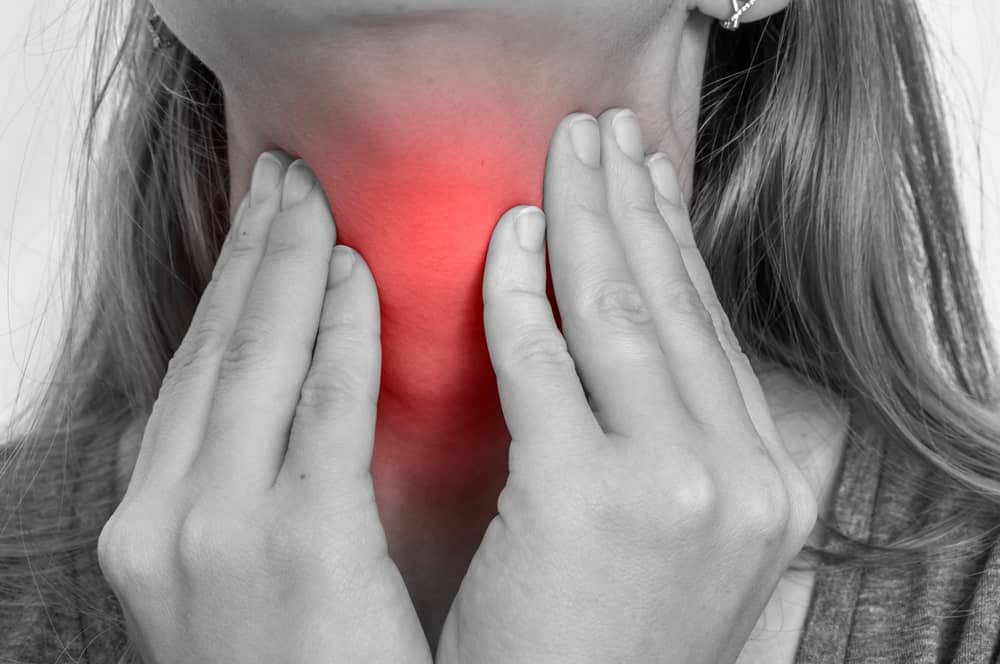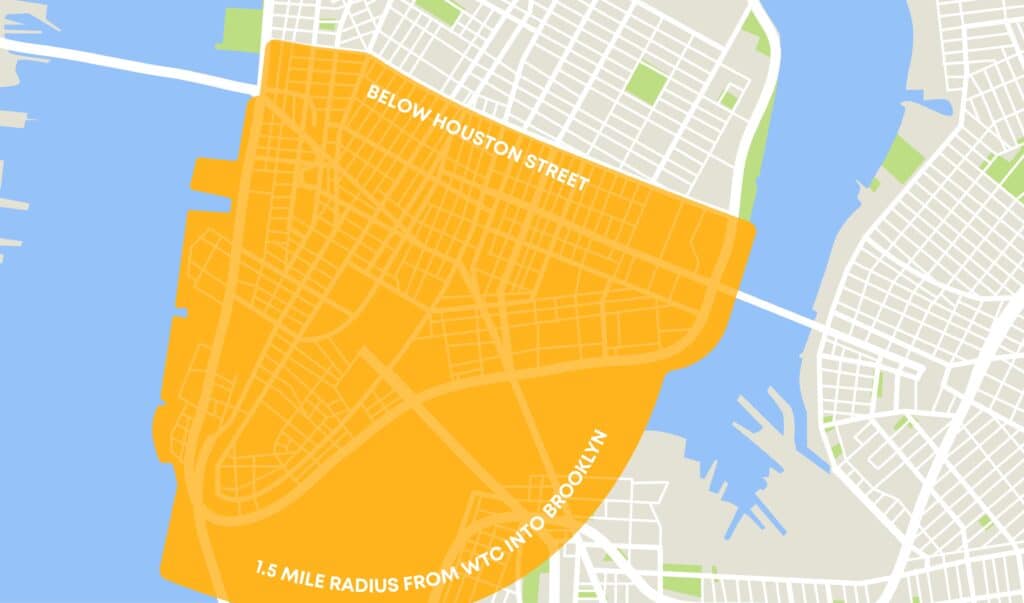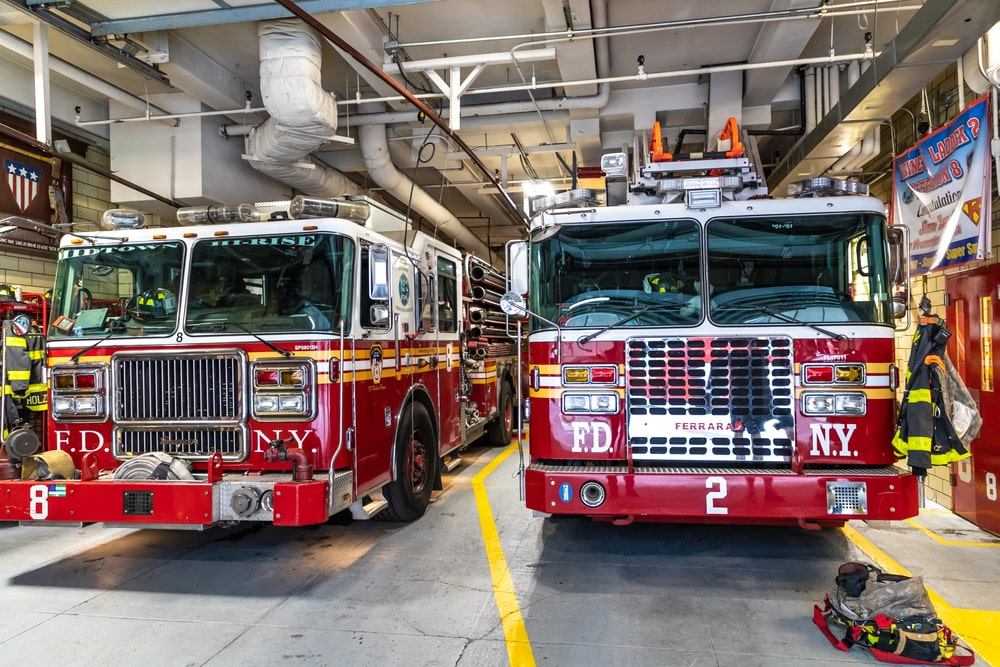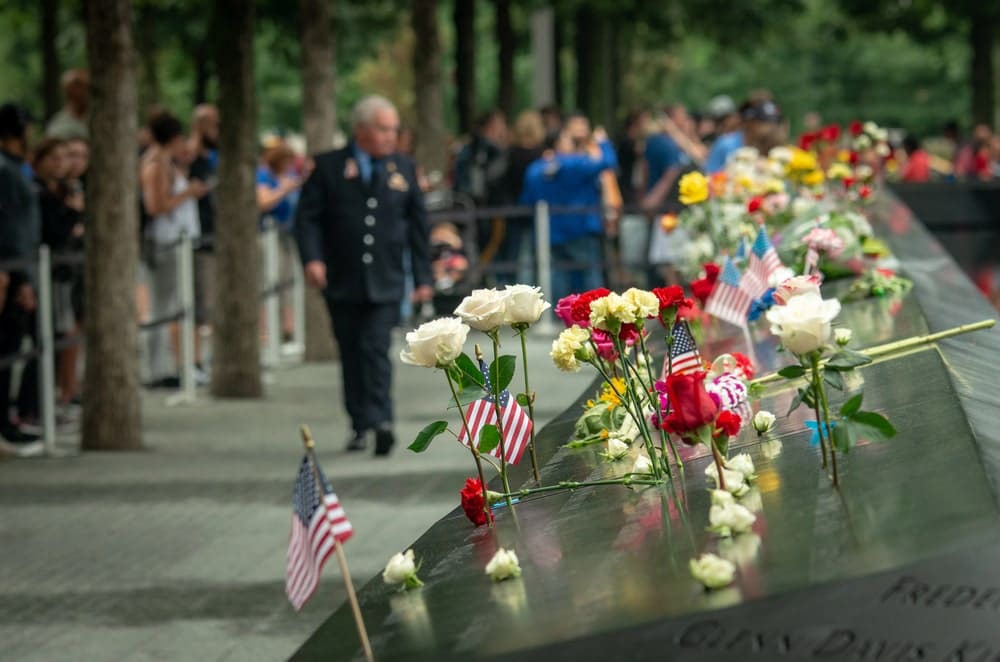
The World Trade Center Health Program (WTCHP) recognizes thyroid cancer as a 9/11-related health condition. In the months following the 9/11 terrorist attacks, those present in the Exposure Zone were exposed to dangerous carcinogens in the air. Individuals diagnosed with thyroid cancer present in the Exposure Zone should contact Weisfuse & Weisfuse, LLP to discuss filing a 9/11 thyroid cancer claim with the September 11th Victim Compensation Fund (VCF).
VCF Payout for Thyroid Cancer
Anyone who worked as a 9/11 responder or spent significant time in the Exposure Zone in the months that followed 9/11, who has since been diagnosed with thyroid cancer, may be eligible for substantial compensation though the VCF. However, to qualify for compensation, victims must first enroll in the WTCHP. Contact Weisfuse & Weisfuse, LLP to get help filing a 9/11 thyroid cancer claim right away.
The experienced and effective legal team at Weisfuse & Weisfuse, LLP is committed to helping survivors and responders by providing skilled legal services to the 9/11 community. We are here to help victims of 9/11-related illnesses navigate this complicated process so that they can focus on improving their health and getting the medical and financial assistance they are entitled to.
Increased Risk of Cancer in 9/11 Victims
Approximately 2,750 Americans were killed in the 9/11 attacks, and at least 2,000 more have died from illnesses related to toxic dust exposure on or after September 11th, 2001. Sorrowfully, this number keeps growing.
According to research conducted by Mount Sinai’s Icahn School of Medicine, there is “evidence of increased risk for certain cancers among WTC-exposed responders.” The study of 28,729 responders revealed that these individuals have a 41 percent higher risk of developing leukemia, a 25 percent higher risk of developing prostate cancer, and a 219 percent higher risk of developing thyroid cancer.
What is Thyroid Cancer?
Thyroid cancer is a type of endocrine cancer that affects the thyroid, a gland at the base of the throat that regulates essential body functions such as body temperature, metabolism, heart rate, and blood pressure. When cancerous cells grow out of control in the thyroid, it can severely impact these main body functions, leading to permanent impairment or even death.
There are three main types of thyroid cancer:
- Papillary thyroid cancer and follicular thyroid cancer, known together as differentiated thyroid cancer, occur in the follicular cells of the thyroid, which produce and store hormones;
- Medullary thyroid cancer, which occurs in the non-thyroid cells of the thyroid gland;
- Anaplastic thyroid cancer, a rare and aggressive type that starts in the follicular cells and spreads quickly to other organs.
The prognosis for thyroid cancer depends on the type of cancer and how quickly it was detected. For example, papillary thyroid cancer is the most common type and tends to spread slowly, giving doctors a larger window to diagnose. Slow spread and ease of diagnosis make papillary thyroid cancer less dangerous than other types. On the other hand, medullary, follicular, and anaplastic types are more aggressive, and as such, they can be challenging to treat.
In general, however, thyroid cancer patients who receive an early diagnosis respond well to treatment.
Symptoms of Thyroid Cancer
In the early stages of thyroid cancer, the patient may not notice any significant changes to their health. They may feel fatigued more often than usual or experience weight fluctuation.
As thyroid cancer progresses, the patient may develop some or all of the following symptoms:
- Difficulty swallowing
- Persistent neck and throat pain
- Swollen lymph nodes in the neck
- Swelling of the neck, or a hard lump near the throat
- Changes to the voice, especially hoarseness
- Persistent cough
Individuals experiencing any of these symptoms should see their doctor as soon as possible. The World Trade Center Health Program (WTCHP) recognizes thyroid cancer as a covered condition and provides medical treatment. Weisfuse & Weisfuse, LLP will enroll clients suffering from 9/11 thyroid cancer in the WTCHP and help them obtain financial compensation from the VCF by bringing a 9/11 thyroid cancer claim.
How is Thyroid Cancer Diagnosed?
Since many thyroid cancer symptoms can also present themselves in other thyroid conditions, such as hypo- and hyperthyroidism, doctors generally perform several diagnostic procedures to eliminate all other possibilities before diagnosing thyroid cancer.
In most cases, a physician will first perform a comprehensive physical exam, noting any unusual masses on the neck or near the thyroid. They will also run thyroid function tests to determine if the blood exhibits elevated levels of hormones, calcium, or phosphorus. If necessary, they may perform an ultrasound or scan of the thyroid or conduct a biopsy to examine the tissue’s cell growth.
How is Thyroid Cancer Treated?
Each individual’s treatment plan will depend on the specific type of thyroid cancer, but most patients will need surgery to remove all or part of their thyroid. After surgery, chemotherapy or radiation therapy may be required, and many patients will be prescribed thyroid hormone replacement supplements.
Once in remission, the patient will be monitored for signs of relapse, and medication will be adjusted as needed. It’s essential for thyroid cancer patients to keep these appointments, as some cancers, such as follicular thyroid cancers, tend to recur. Prompt and thorough treatment dramatically improves the prognosis for thyroid cancer patients.
Source: https://www.healthline.com/health/thyroid-cancer
9/11 Thyroid Cancer Development
The World Trade Center Health Program (WTCHP) recognizes thyroid cancer as a 9/11-related health condition. The WTCHP determines which types of cancers are covered based on medical studies showing the frequency of certain cancers among 9/11 survivors and responders compared to the unexposed population. It also bases its decision on the existence of any peer-reviewed medical studies that link a type of cancer to the kinds of carcinogens found in the Exposure Zone.
Medical studies have shown that asymptomatic thyroid cancer occurs at a much higher rate in responders than in the general population. Victims may have thyroid cancer without symptoms. Early diagnosis significantly improves survival rates for patients with 9/11 thyroid cancer, so it is essential for anyone in the Exposure Zone to get regular thyroid screenings. It is highly recommended that all 9/11 responders and survivors enroll in the WTCHP, through which victims can receive these essential medical screenings and treatment.
VCF Compensation Available Thyroid Cancer
Individuals present at the terrorist attack sites in New York City and Shanksville, PA, and those suffering from thyroid cancer may qualify for government compensation. The September 11th Victim Compensation Fund (VCF) assists 9/11 survivors and responders with financial compensation, and the WTCHP provides medical treatment for their 9/11 related health conditions.
Contact Weisfuse & Weisfuse, LLP Today
Those who have thyroid cancer due to exposure after the 9/11 attacks should seek immediate legal counsel. The skilled legal team at Weisfuse & Weisfuse, LLP can help by providing thorough legal representation and submitting a medically-supported optional impact statement to maximize compensation.
Our experienced 9/11 thyroid cancer lawyers can help victims determine eligibility for these programs, apply for enrollment, and bring a VCF claim. Call Weisfuse & Weisfuse, LLP today at 212-983-3000 for a free and confidential consultation about filing a 9/11 thyroid cancer claim.






